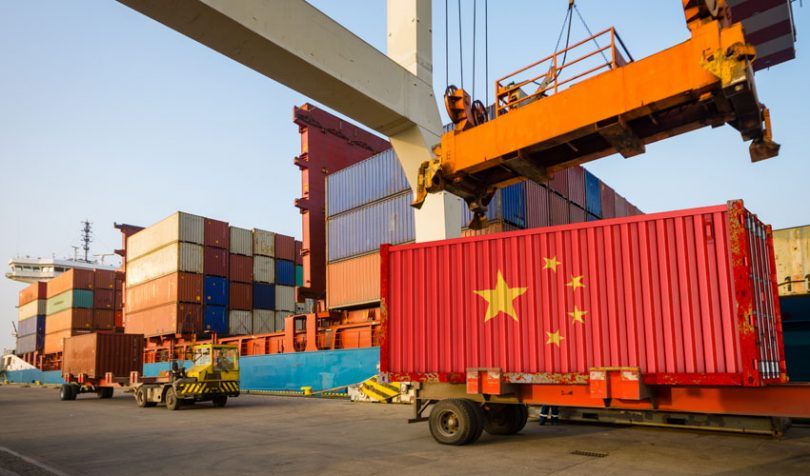Retake Control of Our Strategic Assets
No foreign power should own or control our airports, water ports, electricity, water providers, hospitals, and media.
Europe’s strategic assets face threats from within and outside of Europe.
European governments and companies notoriously neglect investment in strategic assets. Privatisation and pushes for profit lead to poor maintenance, scrapping of capabilities and production lines, and inadequate screening of foreign investment.
One of the most persistent and subversive threats to European economic stability and strategic autonomy is the proliferation of Foreign Direct Investments (FDIs) in the European Union by totalitarian regimes such as China and Russia. These investments are directed both towards standard commercial goods and products as well as strategic assets, services or entities, including CIs.
As a result of the European sovereign debt crisis of 2010 – 2014, foreign powers (especially China) have increased their efforts to acquire or control critical European infrastructure, strategic assets which are essential for providing vital economic and social functions to Europeans. Currently, Chinese state owned enterprises already control significant stakes in the Italian power grids, British gas network and Greece’s grid operator.
As a further example in the maritime transport sector, the table below shows China owned or operated ports in European countries, as well as how many of those ports have already been used by the Chinese military navy for port calls:
Table 1: Ports owned or operated by China and their military usage
| Country | Ports owned by China | Ports used by PLN |
| Belgium | 2 | 1 |
| France | 4 | 0 |
| Germany | 1 | 1 |
| Greece | 2 | 1 |
| Italy | 1 | 0 |
| Malta | 1 | 0 |
| Netherlands | 2 | 1 |
| Poland | 1 | 1 |
| Spain | 3 | 1 |
| Sweden | 1 | 0 |
| Total | 17 | 6 |
This has proven to be a cheap and effective way to buy outsized political influence in Europe. After the Chinese buyout of Portugal’s energy sector, the Portuguese government has become one of the strongest voices in Europe fighting against screening of Chinese investments in Europe. By contrast, China does not allow foreign ownership of its strategic assets, or any open access to, for example, its transport market.
Maintaining an open and transparent environment for foreign investment is an important pillar of our economic growth. Foreign direct investment is welcome in Europe, however, we need to ensure it cannot be used against European interests.
The threat posed by foreign direct investments from authoritarian regimes is significant, as it is often difficult to monitor and regulate the activities of these investments and investments can be used to gain control of strategic assets, influence policy making and access sensitive military and intelligence information. European countries must take steps to ensure that their strategic assets and industries remain protected from foreign interference and that investments from adversarial states do not damage long-term interests or national security.
We propose the following immediate actions to strengthen our ability to manage the threat of owned or controlled interests:
- Allow FDI only from countries where opportunities for such investment in their own countries are open to European governments and companies
- Establish and fund a EU-wide government agency tasked with countering the threat of malicious foreign direct investments, with the capability to identify and deal with FDI threats.
- This agency will have oversight of foreign acquisition of European companies, particularly where these companies control strategically relevant infrastructure or intellectual property, and hold board-level with veto power over strategically significant actions (e.g. M&A, major changes to operations, major investment decisions) for entities with at least 5% ownership by an adversary foreign power.
- Enact legislation to reduce and limit foreign ownership to non-controlling stakes in strategically important entities, including but not limited to media, digital, research, healthcare, and education.
- Monitor and assess the investments of foreign powers and their effects on European interests, such as the acquisition or control of critical infrastructure, strategic assets and services.
- Promote European public and private investment in strategic assets, especially where necessary to maintain strategic capabilities where these are not the profit-driving parts of the asset or company
- Broaden the categories of strategically important infrastructure to include media, digital, research, healthcare, and education.
The European Union faces a real and present threat to its economic stability, strategic autonomy, and critical infrastructure from the influx of Foreign Direct Investments from authoritarian regimes. This has only been exacerbated by the European sovereign debt crisis of 2010-2014, resulting in a more aggressive posture from China to acquire or control European assets. In order to combat this threat, the EU must take decisive action to increase transparency and oversight, as well as limit foreign ownership of strategic assets. A strong and unified response is needed to ensure European interests are protected and that Europe remains a strong and vibrant economy.
Europe must take a proactive approach to defending its strategic interests, and safeguarding the security of its citizens. European governments, businesses, and civil society must be vigilant in monitoring and assessing foreign investments, and take swift action when necessary to protect European sovereignty.
Further reading:
China’s influence and operating of the main European ports – Modern Diplomacy
China’s strategic investments in Europe: The case of maritime ports
Chinese Firms Now Hold Stakes In Over A Dozen European Ports : NPR
NATO in deep water because of Chinese port investments – VSQUARE.ORG
Pier Competitor: China’s Power Position in Global Ports | International Security | MIT Press
Chinese-run ports worldwide exert pier pressure | International
COSCO’s Hamburg Terminal Acquisition: Lessons For Europe – War on the Rocks
https://www.uscc.gov/sites/default/files/Kardon_Written%20Testimony.pdf
Chinese FDI in Europe: 2021 Update | Rhodium Group
The Security Implications of Chinese Infrastructure Investment in Europe
The rise of China and EU vulnerability
Portugal: A China-friendly EU nation driven by need – DW – 03/12/2019
